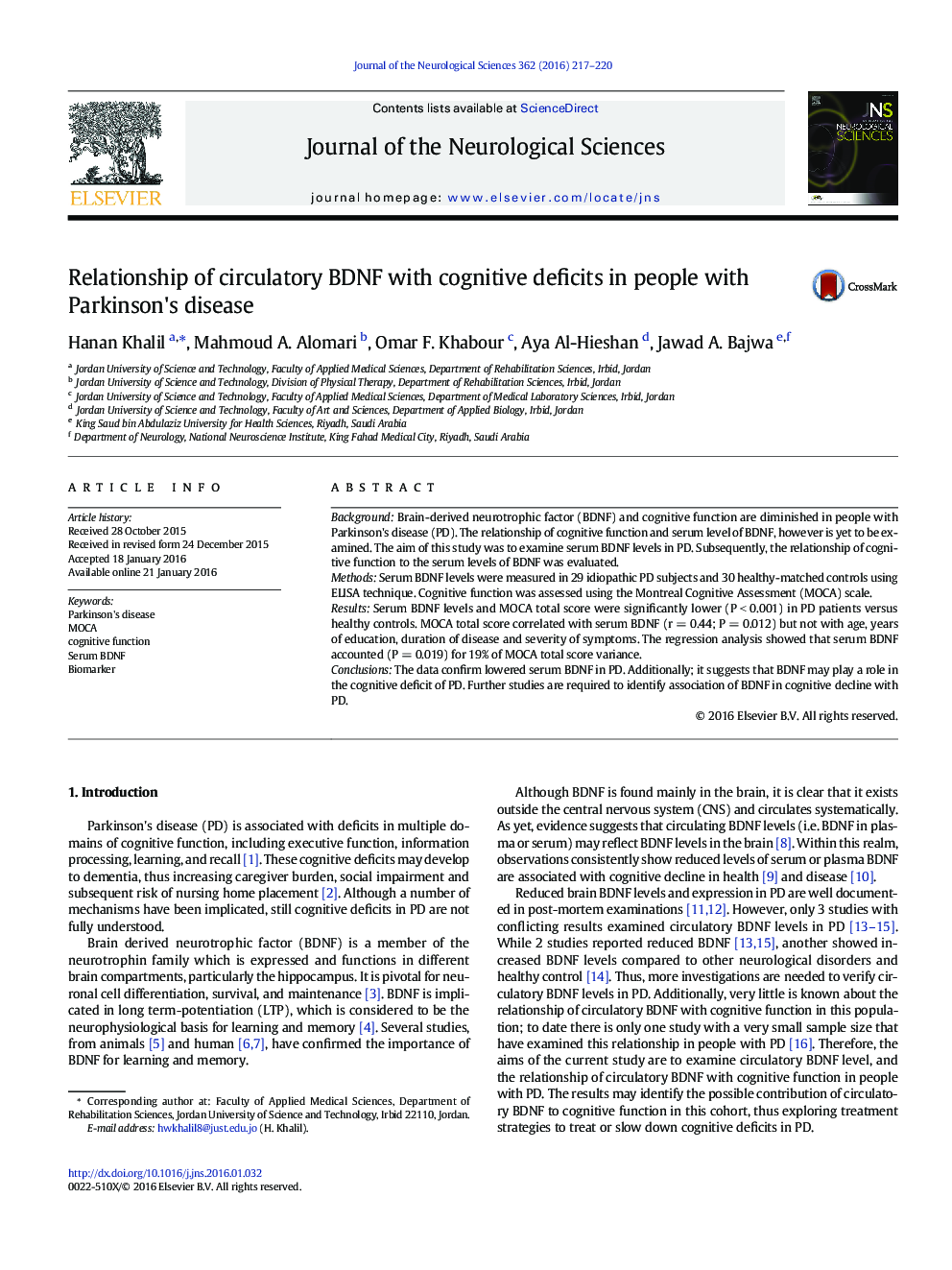| Article ID | Journal | Published Year | Pages | File Type |
|---|---|---|---|---|
| 1913062 | Journal of the Neurological Sciences | 2016 | 4 Pages |
•Serum BDNF is significantly lower in PD patients when compared with healthy controls.•Serum BDNF correlates significantly with the cognitive function in PD.•Findings of the study shed the light into the potential that serum BDNF can be used as biomarkers of cognition in PD.
BackgroundBrain-derived neurotrophic factor (BDNF) and cognitive function are diminished in people with Parkinson's disease (PD). The relationship of cognitive function and serum level of BDNF, however is yet to be examined. The aim of this study was to examine serum BDNF levels in PD. Subsequently, the relationship of cognitive function to the serum levels of BDNF was evaluated.MethodsSerum BDNF levels were measured in 29 idiopathic PD subjects and 30 healthy-matched controls using ELISA technique. Cognitive function was assessed using the Montreal Cognitive Assessment (MOCA) scale.ResultsSerum BDNF levels and MOCA total score were significantly lower (P < 0.001) in PD patients versus healthy controls. MOCA total score correlated with serum BDNF (r = 0.44; P = 0.012) but not with age, years of education, duration of disease and severity of symptoms. The regression analysis showed that serum BDNF accounted (P = 0.019) for 19% of MOCA total score variance.ConclusionsThe data confirm lowered serum BDNF in PD. Additionally; it suggests that BDNF may play a role in the cognitive deficit of PD. Further studies are required to identify association of BDNF in cognitive decline with PD.
